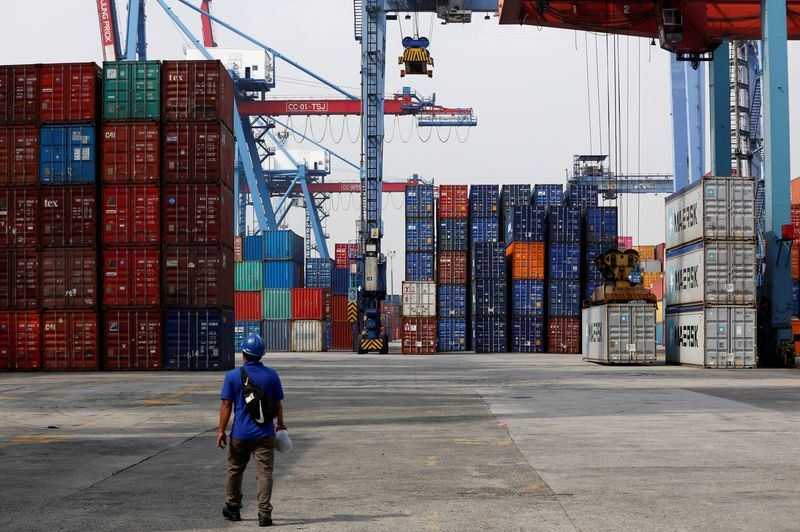JAKARTA (Reuters) – Indonesia’s imports in April shrank at the fastest pace in nearly five years, underlining weak domestic demand and as its export markets were disrupted by the coronavirus pandemic, trade data showed on Friday.
Southeast Asia’s largest economy booked a $344.7 million trade deficit in April, according to the data released by the country’s statistics bureau, larger than the $200 million gap expected in a Reuters poll. The deficit was its first after two months of trade surpluses.
April imports plummeted 18.58% to $12.54 billion, the biggest fall since October 2015, versus the poll’s median projection of a 12.73% decline, although some analysts in the poll had expected an even bigger drop.
Purchases of consumer and capital goods to raw materials contracted.
Imports of consumer goods are traditionally stronger before the Muslim fasting month of Ramadan, which began on April 23.
Aldian Taloputra, Standard Chartered economist in Jakarta, who had expected a nearly 25% slump, said the import data was in line with a projected slowdown in second-quarter economic growth and confirmed weak manufacturing activity, as suggested in the purchasing managers’ index survey.
“What we’re looking to find out is how fast the economy will recover. Our expectation is for the second quarter to produce the weakest economic activity and a rebound in the third quarter,” he said.
Indonesia began imposing large-scale social restrictions in April to contain the spread of the coronavirus, which as of Thursday had infected 16,006 people and killed 1,043 in the country.
Meanwhile, exports in April dropped 7.02% on year to $12.19 billion, the sharpest fall in eight months and compared with the 2.70% expected in the poll, which the statistics bureau blamed on falling commodity prices and weak global demand.
Shipments of clothes, cars and coal dropped, although exports of palm oil and fruits rose.
The head of finance ministry’s fiscal policy office Febrio Kacaribu said this week he expected GDP to shrink in the second quarter due to the coronavirus measures, following the weakest economic expansion in 19 years in January-March.
(Additional reporting and writing by Gayatri Suroyo; Editing by Shri Navaratnam and Jacqueline Wong)






















